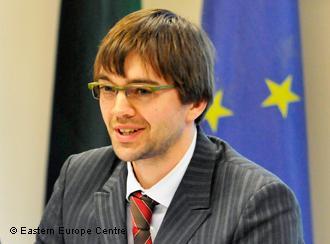Lithuanian political scientist about Lukashenka: We usually call such people terrorists

The Lithuanian expert is desperate to see change in Belarus and notes real threats to the country’s independence.
"Most politicians and foreign policy makers are desperately looking for a sign that Belarus is changing. Granted, political prisoners were released. Looking at a longer-term perspective, however, we know that it happened before, they [political prisoners] were released in 2010, - assumes Vytis Jurkonis political scientist, a teacher with the Institute of International Relations and Political Science at Vilnius University. - Frankly, Lukashenka is trading hostages. We usually call such people terrorist."
Western observers say that the Belarusian election, which gave a 83.5-percent victory to the current president, cannot be considered free and fair. The authenticity of the results cannot be verified as, according to the opposition, only 30 members of some 70,000 in the vote counting commissions represented the opposition.
The fact that the vote was not preceded by a crackdown on Lukashenka's political opponents, as was the case in 2010, is largely to do with there being no significant protests to speak of, Delfi quotes Jurkonis’ words.
"The situation in Belarus, unfortunately, hasn't changed. Those political prisoners were released one day, but there's no guarantee they won't be arrested in November. Human rights violations, restrictions on freedoms remain in place. The opposition is completely marginalized, there's no independent media to speak of, it's very restricted, and civil society is pushed underground," Jurkonis says.
As to the claims that Western benevolence is largely a reward for Lukashenka taking a somewhat neutral stance in the EU's stand-off with Russia over Ukraine, Jurkonis says it would be wrong to assume that Belarus is abandoning its alliance with Moscow.
"I am surprised when people and our foreign policy makers talk about Minsk allegedly not recognizing the annexation of Crimea. Look at the UN General Assembly vote - [Belarus] voted against Ukraine's territorial integrity. In the Riga [Eastern Partnership] summit in May, Armenia and Belarus blocked Crimea's inclusion into the resolution." Moreover, he adds, Belarus continues hosting Russia's military bases and war-games. Belarus is "a partner which is in a military alliance with the Kremlin" and it would be wrong to forget that, Jurkonis insists.
-
03.01
-
07.10
-
22.09
-
17.08
-
12.08
-
30.09








































